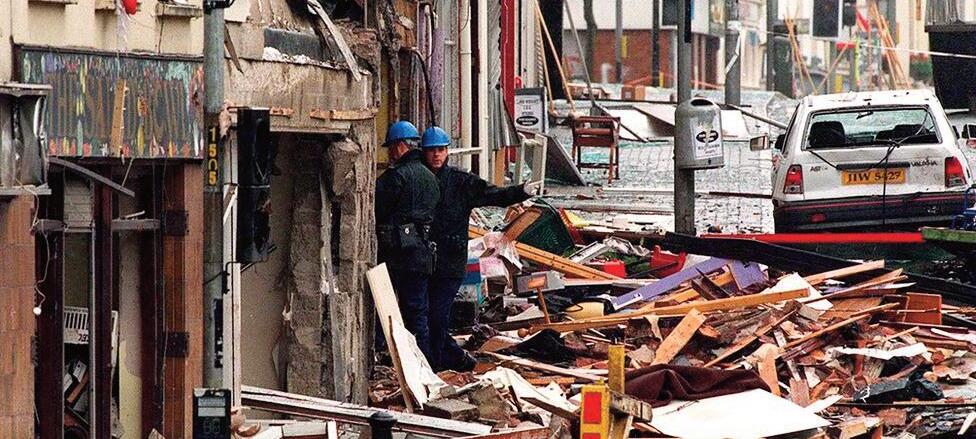
4 minute read
Omagh bomb inquiry: Relatives deserve truth and justice
By Daniel Waldron, Omagh Socialist Party
ON 2 February, Tory secretary of state Chris Heaton-Harris announced that an ‘independent’ statutory inquiry is to be launched into security forces’ handling of the 1998 Omagh bombing. This comes after years of campaigning by the victims and their relatives, which resulted in a High Court ruling in 2021 calling for such an inquiry to be established.
The huge car bomb attack killed 29 people and injured many others. It was the single deadliest incident during the course of the Troubles, and its impact is still felt by many today. The bombing was particularly shocking as it came less than three months after the ratification of the Good Friday Agreement, which many hoped would consign such atrocities to the history books.
The attack was carried out by ‘dissident’ republicans connected to the Real IRA. Confused warnings led to police evacuating the wrong area and moving people towards the vehicle containing the device. The bombers’ motivation was to derail the nascent ‘peace process’. It backfired spectacularly, further isolating those forces which opposed the Good Friday Agreement and creating the pretext for new anti-terror laws.
Numerous allegations have been made that security forces had intelligence which could have prevented the bombing, but that this information was not shared in a timely and effective manner. Informants working for MI5 and the Garda special branch have alleged that they made their handlers aware that a major bombing was imminent, and that Omagh had even been identified as a potential target.
A BBC Panorama investigation presented evidence that British security agency GCHQ were monitoring the bombers’ phone calls as the device was being brought across the border from Louth. Criticisms have also been made of the RUC (now PSNI) response, both before and after the bombing. No one has been convicted of the attack, although victims’ families did successfully win a civil action settlement against four individuals.
Understandably, the announcement of the inquiry has been welcomed by many victims and their families. There is already reason, however, to doubt the transparency of this investigation.
Heaton-Harris has stated that it will not be fully open to the public and media, but that this will be at the discretion of the appointed chairperson. This creates a mechanism whereby the state can intervene to keep embarrassing or nefarious details under wraps. The British capitalist state - like its Southern counterpart - has a long history of engineering whitewash inquiries into its activities, not least the 1972 Widgery report into Bloody Sunday.
While ordinary people will welcome any step towards truth and justice for the victims of the Omagh bombing, the announcement of this inquiry smacks of hypocrisy from the British government in the context of its proposed so-called Legacy & Reconciliation Bill. This legislation aims to effectively ban fresh legal actions and inquiries relating to state and paramilitary atrocities committed during the Troubles, granting de facto immunity to those involved. This has been rejected by victims’ groups across the board. The bill is primarily an attempt by the British state to bury the reality of its own role in the Troubles, including collusion with paramilitary forces. None of the forces involved in the Troubles - neither the paramilitaries, the Orange and Green politicians, nor the British and Irish states - want a real accounting with the past, and they cannot be relied upon to deliver truth, justice, or reconciliation. Only forces representing the interests of all victims and of the wider working-class could achieve this. As part of the struggle to overcome sectarian division and the rotten capitalist system in which it is rooted, this could take the form of a genuine truth-and-reconciliation commission, made up of anti-sectarian trade union activists, human rights campaigners, and those with a track record of fighting for the interests of all victims of the Troubles.










